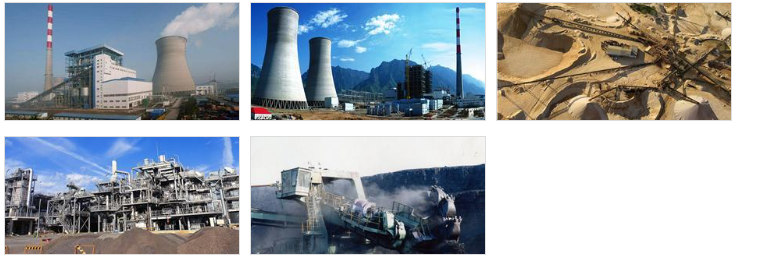Maori
- Afrikaans
- Albanian
- Amharic
- Arabic
- Armenian
- Azerbaijani
- Basque
- Belarusian
- Bengali
- Bosnian
- Bulgarian
- Catalan
- Cebuano
- Corsican
- Croatian
- Czech
- Danish
- Dutch
- English
- Esperanto
- Estonian
- Finnish
- French
- Frisian
- Galician
- Georgian
- German
- Greek
- Gujarati
- Haitian Creole
- hausa
- hawaiian
- Hebrew
- Hindi
- Miao
- Hungarian
- Icelandic
- igbo
- Indonesian
- irish
- Italian
- Japanese
- Javanese
- Kannada
- kazakh
- Khmer
- Rwandese
- Korean
- Kurdish
- Kyrgyz
- Lao
- Latin
- Latvian
- Lithuanian
- Luxembourgish
- Macedonian
- Malgashi
- Malay
- Malayalam
- Maltese
- Maori
- Marathi
- Mongolian
- Myanmar
- Nepali
- Norwegian
- Norwegian
- Occitan
- Pashto
- Persian
- Polish
- Portuguese
- Punjabi
- Romanian
- Russian
- Samoan
- Scottish Gaelic
- Serbian
- Sesotho
- Shona
- Sindhi
- Sinhala
- Slovak
- Slovenian
- Somali
- Spanish
- Sundanese
- Swahili
- Swedish
- Tagalog
- Tajik
- Tamil
- Tatar
- Telugu
- Thai
- Turkish
- Turkmen
- Ukrainian
- Urdu
- Uighur
- Uzbek
- Vietnamese
- Welsh
- Bantu
- Yiddish
- Yoruba
- Zulu
Telephone: +86 13120555503
Email: frank@cypump.com
Nov . 07, 2024 18:38 Back to list
Affordable Septic Tank Pumps Available for Purchase Online Today
The Importance of Quality Septic Tank Pumps for Homeowners
When it comes to maintaining a residential septic system, one of the most critical components is the septic tank pump. These pumps play an essential role in ensuring that waste is effectively transported from the septic tank to the drain field, preventing backups and costly repairs. For homeowners who live in areas without municipal sewer systems, having a reliable septic tank pump is not just a matter of convenience—it is an essential part of home maintenance.
Understanding Septic Tank Pumps
Septic tank pumps are designed to move wastewater from the septic tank to the drainage field. In situations where gravity alone cannot facilitate this movement—due to the layout of the property or the distance from the tank to the drain field—a pump becomes necessary. There are two main types of pumps commonly used in septic systems effluent pumps and sewage pumps. Effluent pumps are used to transfer treated wastewater, while sewage pumps handle raw sewage. Understanding the right type of pump for your system is crucial for optimal performance.
Choosing the Right Pump
When looking for septic tank pumps for sale, there are several factors to consider to ensure you make the best choice for your home.
1. Pump Type Determine whether you need an effluent or sewage pump based on your specific waste management needs. Effluent pumps are typically used when the wastewater is relatively clear after initial processing, while sewage pumps are necessary for handling heavier, more viscous waste.
2. Pumping Capacity Different pumps have varying capacities, measured in gallons per minute (GPM). Consider the volume of wastewater your system produces to choose a pump with an adequate capacity. A pump that is too small may lead to frequent malfunctions, while an oversized pump can waste energy and lead to unnecessary wear.
3. Durability and Material Look for pumps made from durable materials resistant to corrosion and wear. Stainless steel or thermoplastic pumps are commonly preferred due to their longevity and effectiveness in harsh environments.
septic tank pumps for sale

4. Features Modern septic tank pumps come with various features designed to enhance performance, including automatic activation, alarms for malfunctions, and energy-efficient designs. Investing in a pump with these features can save you time and money in the long run.
Shopping for Septic Tank Pumps
When exploring options for septic tank pumps for sale, consider purchasing from reputable suppliers who specialize in waste management equipment. Online platforms, local hardware stores, and plumbing suppliers often have a range of pumps available, but it’s crucial to read reviews and ensure that you are purchasing a high-quality product.
Additionally, consulting with a professional technician can provide valuable insights into what pump would be best suited for your existing septic system. A technician can also assist with proper installation, ensuring that the pump operates efficiently right from the start.
Maintenance is Key
Once you have selected and installed a septic tank pump, regular maintenance is essential to prolong its lifespan and ensure efficient operation. Homeowners should frequently check the pump and its components, including the float switch, for any signs of malfunction or wear. Keeping the surrounding area clear of debris and maintaining good access to the pump can help facilitate easy repairs when necessary.
Conclusion
Investing in a quality septic tank pump is a vital aspect of maintaining an efficient septic system. By understanding your needs, carefully choosing the right pump, and committing to regular maintenance, you can ensure that your septic system functions effectively for years to come. Whether you are a first-time homeowner or looking to upgrade your existing system, take the time to explore your options and make an informed decision that will benefit your household. Having a reliable septic tank pump not only protects your property but also contributes to a cleaner environment.
-
ISG Series Pipeline Pump - Chi Yuan Pumps | Energy Efficiency&Compact Design
NewsAug.03,2025
-
ISG Series Vertical Pipeline Pump - Chi Yuan Pumps Co., LTD.|High Efficiency, Low Noise, Durable
NewsAug.02,2025
-
ISG Series Vertical Pipeline Pump - Chi Yuan Pumps | High Efficiency, Low Noise
NewsAug.02,2025
-
ISG Series Vertical Pipeline Pump- Chi Yuan Pumps Co., LTD.|High Efficiency&Compact Design
NewsAug.02,2025
-
Heavy-Duty Mining Sludge Pumps - Wear-Resistant Slurry Handling
NewsAug.02,2025
-
Horizontal Split Case Pump with GPT-4 Turbo | High Efficiency
NewsAug.01,2025










